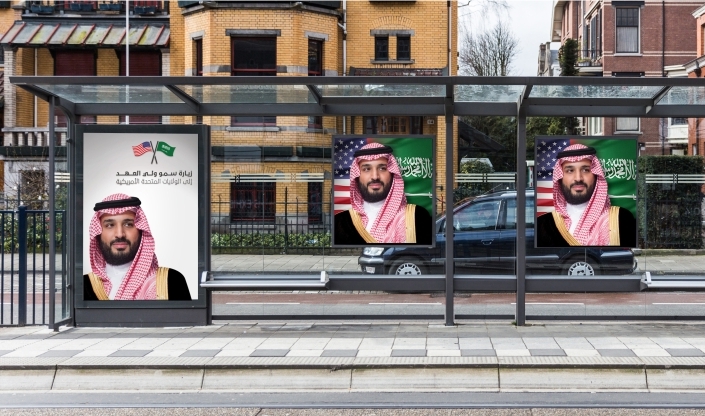
US keen to deepen strategic relations with Saudi Arabia
US President Donald Trump will host Crown Prince Muhammad Bin Salman, deputy premier and minister of defense, in Washington on Tuesday, giving the president a receptive audience to denounce Iran and a chance to take stock of significant changes the Crown Prince is engineering in the Kingdom.
The official announcement by the White House about the visit indicates the US keenness to deepen strategic relations with the Kingdom based on the economic and investment as well as political and security aspects, according to observers.
The meeting between Trump and Crown Prince Muhammad will focus on all issues of concern beginning with the agreement to confront Iran and its meddling in the affairs of the region’s countries.
The other topics on the agenda of talks include amendment to the Iranian nuclear deal, forcing the Houthi militias to accept negotiations in Yemen, finding a solution to the Syrian crisis, reviving the Palestinian-Israeli peace process and combating terror and those supporting and funding it.
The Crown Prince’s visit will not only be restricted to meeting Trump, senior Congress officials and think-tanks, but it will also focus on attracting US investments.
Crown Prince Muhammad will also meet CEOs of major companies in the Silicon Valley and Seattle.
He is also scheduled to visit New York, Boston and Houston.
Ten months after the last face-to-face meeting between Trump and the Crown Prince in Riyadh, the two leaders are expected to deepen an already warm and congenial relationship.
“It’s jaw-dropping how many policy changes the Saudis have pursued at home and in the region since that last meeting,” said Lori Plotkin Boghardt, a former CIA analyst now with the Washington Institute for Near East Policy.
Early on, the Crown Prince announced an ambitious Vision 2030 initiative to build an economy less dependent on oil, while luring more foreign investment.
Toward that end, Riyadh wants to greatly accelerate the pace of its civilian nuclear energy program.
The United States and Saudi Arabia are historic allies. Ever since Franklin Delano Roosevelt met the late King Abdul Aziz on a US naval ship in the Suez Canal in 1945, every American president has carefully nurtured relations with the Kingdom.
But the unstinting support Trump offered when he chose Riyadh as the destination of his first overseas trip as president brought the relationship to a new level.
While Barack Obama said in 2015 that it was important “not to perpetuate any long-term confrontation with Iran, or to even marginalize Iran,” Trump, who has repeatedly threatened to withdraw from the nuclear deal reached that year with Tehran, has chosen a very different path.
“Everywhere we go in the Middle East it’s Iran, Iran, Iran,” Trump said a few days ago. “Every problem is Iran.”
Crown Prince Muhammad compared the territorial ambitions of Iran’s Ali Khamenei to those of Adolf Hitler in Nazi Germany. And he warned that if Iran were to develop a nuclear bomb, Saudi Arabia would do the same “as soon as possible.”



























